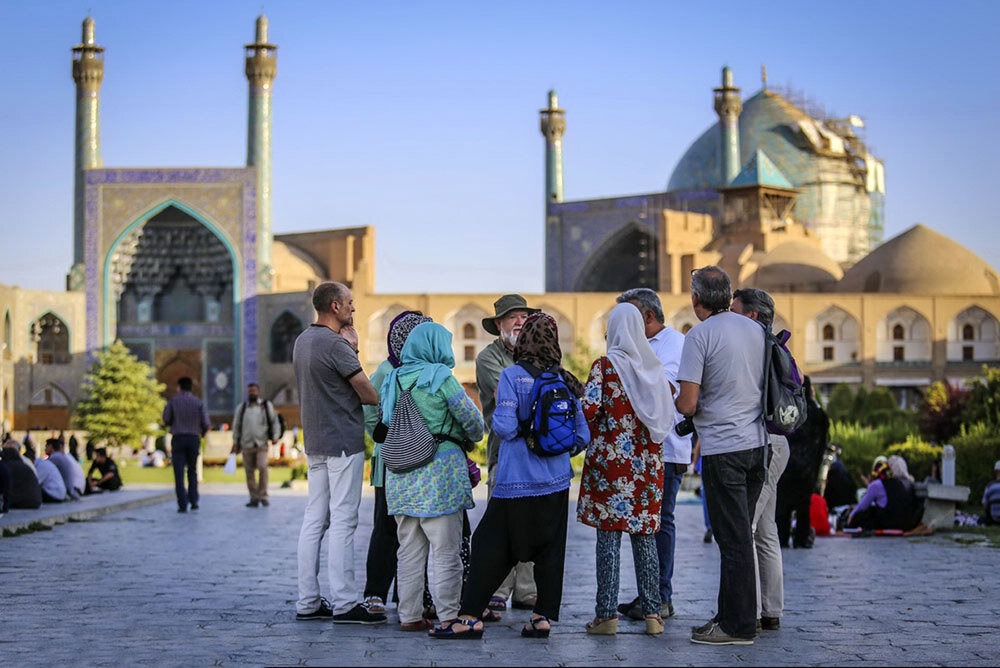World Tourism Day to focus on job generation, better future

TEHRAN - World Tourism Day is annually commemorated on September 27 with worldwide celebrations under the auspices of the UN World Tourism Organization (UNWTO).
The event is intended to raise awareness among the global community about various tourism-related arenas of social, cultural, political and financial dimensions as well as the contribution the sector can make to reach the sustainable development goals.
This year, the UNWTO has adopted the motto of “Tourism and Jobs: A Better Future for All” as the organization has set goals on development of skills, education and jobs, wishing to realize a better future.
The UNWTO, in a note posted on its website, expresses the need for formulating new policies in order to achieve the goals.
“New policies are needed to maximize tourism’s potential to create more and better jobs, especially for women and youth. New policies are also needed to reflect and incorporate ongoing advances in technology.”
It also accentuates on a missing link between tourism-related expertise and what travel businesses need.
“Policies and actions should be geared towards addressing the current mismatch between tourism skills that are taught and those that tourism employers need. This requires a holistic approach to the future of work in tourism, with heightened cooperation between all actors, including the public and private sectors.”
New policies are needed to maximize tourism’s potential to create more and better jobs, especially for women and youth
Regarding the future of tourism-associated jobs, the UNWTO says that creating and ensuring equitable employment is essential to increasing social inclusion, peace and security, adding that the potential of every economic sector to provide decent jobs should be utilized to its fullest.
“The emergence of new technologies has led to the development of new forms of work that are rapidly changing production processes worldwide. This both provides opportunities for, and puts pressure, on existing employment, welfare and education agendas.”
According to the International Labour Organisation (ILO), global unemployment remains high. All sectors and countries, therefore, need to create the conditions for more and better jobs. Embracing new technology can play a key role in achieving this goal.
The organization has also highlighted the impact of cutting-edge technologies on job skills saying, “Making the new wave of technological breakthroughs as inclusive as possible will require considerable investment in training and skills for life and work. Everyone should have a chance to develop their full potential so as to benefit from the new technological era.”
“To do this we need to examine the impact of technological change on socioeconomic growth, jobs and inequality. We also need to provide tools and skills to those who are looking for a job and as well as to those whose jobs are at risk of automation.”
On the occasion of its centenary in 2019, the ILO released “Work for a Brighter Future: Report of the Global Commission on the future of Work”. This landmark report takes note of the forces transforming the world – technology, climate change, demography, globalization – to call for a human-centered agenda for the future of work.
The ILO estimates that ‘accommodation and restaurants’, together with ‘private sector services’, will create jobs at the fastest rate among all sectors in the economy over the next five years.
Iran and its booming tourism
According to a World Travel and Tourism Council’s annual report, Iran’s tourism sector grew by 1.9% to contribute 1,158 trillion rials ($8.83 billion) or 6.5% to the country’s gross domestic product (GDP) and 1,334 jobs (5.4% of total employment) in 2018.
The report, which digs into the economic impact and social importance of the sector, indicated that international visitors spent 168,954 billion rials ($1.28 billion) in the Islamic Republic during 2018.
Nearly 7.8 million foreign nationals visited Iran over the past Iranian calendar year 1397 (ended March 20), showing a 52.5 percent increase year on year. The country hosted 5.1 million travelers in 1396 (March 2017-18).
Medical travelers constitute a considerable share on arrivals in the country. Many domestic experts say that medical tourism produces win-win outcomes in Iran as it can offer considerable benefits to international health-care seekers; affordable yet quality treatment services.
Medical tourism fetched Iran some $1.2 billion in 1397, as its hospitals admitted some 70,000 foreign patients, according to data compiled by the Ministry of Health.
The Islamic Republic has set its goals to exceed its yearly medical travelers to around 2 million in [calendar year] 1404 (March 2025-March 2026).
Under the 2025 Tourism Vision Plan, it aims to increase the number of tourist arrivals from 4.8 million in 2014 to 20 million in 2025.
AFM/MG
